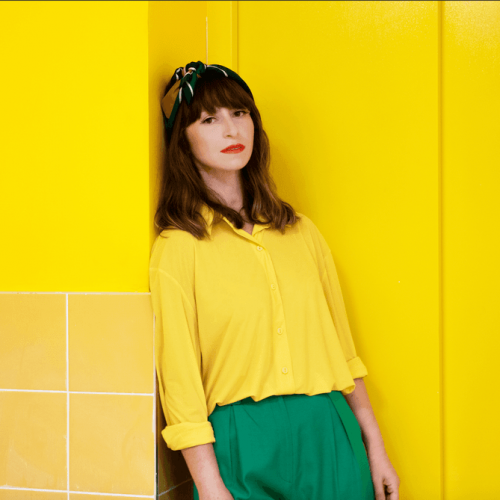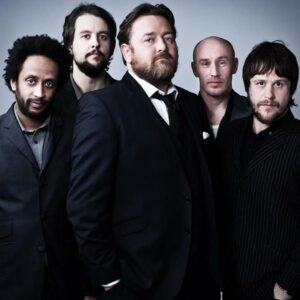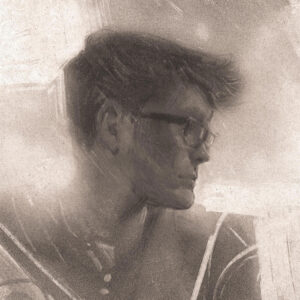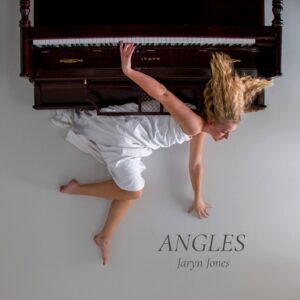In her poem, I measure every Grief I meet, the late great poet Emily Dickinson muses on themes of grief and sadness, using a series of rhetorical questions to try to decode her feelings.
Israel-based musician and composer Aviya Kopelman takes a few pages from Dickinson’s journal in her new song, “Grief Measure”— a modern musical and lyrical twist on these timeless notions of trying to understand and cope with immeasurable sorrow.
“Grief Measure” is a standout on Aviya’s new album Minority. Through the singer Ella Joy Meir’s powerful, brooding vocals and Aviya’s masterful arrangement, “Grief Measure” conjures a beautiful symphony of darkness akin to that inherent in Dickinson’s poem. This off-kilter, alt-pop sound is quite similar to Thom Yorke’s “The Eraser”—both of which compile electronic, classical, and jazz influences into a complex, layered web of sound that’s the perfect accompaniment to such an intimate and raw portrayal of someone reconciling with their inner demons.
In order to come to terms with their anguish, the speaker in both the poem and the track try to quantify grief—as if measuring it or concretizing it could provide some reason or order amid the tumultuous sea of pain. It’s as if by singing, “I measure every grief I meet/With analytic eyes/I wonder if it weighs like mine/Or has an easier size,” the speaker is searching for some community in the midst of their insular world of despair. In finding a comparable level of grief in others, they feel less alone.
So, in the aftershocks of a contentious year and during a continuing pandemic, perhaps we should learn a lesson from Aviya and Dickinson—we should realize that we are not alone in our struggles.
“Grief Measure” involved several different artists. What was the creative process like for this song?
I first wrote this song a long time ago as part of a classical song cycle commissioned by Carnegie Hall. It was for an opera singer, piano, trombone, electric bass and electronics. But I felt it needed a different approach and production, and so it waited for the album to be put together. I rewrote it, changing even the chorus, and wrote an arrangement for all the instruments, knowing already that my friend Ella Joy Meir is going to sing it, as she fits it perfectly. After recording with the band, I was sitting with Tomer Baruch putting on some cool electronics and finding the right sound for it all.
This song is based on the famous Emily Dickinson poem. What was the reasoning behind this choice?
I have loved poetry since I was a little kid. Even when I was not sure about the full meaning of some poem, I loved the magic of it, the multi-layered way of expression, when unexpected ideas resonate strongly with our inner selves. When I first read this Dickinson’s poem, that’s exactly how I felt. It evoked something very strong in me, and together with the words being very musical, I could identify with the poem emotionally, and knew I have to put it to music. Something in the experience of desperately measuring everyone’s grief and pain and comparing it to my own was very much where I used to be those days. Happily, I am not so much there anymore.
How has your upbringing in Moscow and Israel influenced your music?
I think Moscow is responsible for my heavier, dramatic and emotional side, as well as all the classical art, and Israel has mostly influenced me being more daring, autodidact, experimenting and walking at unknown paths. Both places made me feel like a minority wherever I go, hence the title of my album and the musical approach I came with to it.
What do you hope people get out of this song?
I hope people will listen to it till the end, firstly! We live in such an overloaded era, too many things are fighting for our attention every second, so to let ourselves dive in a new song for 4:40 minutes is almost impossible. Then I believe the music will speak, I feel there’s a lot of emotional load in it that the music helps to introspect, and I hope the listeners let it take them to the journey.
What can we expect from you in the future?
I am writing new songs and I am going to collaborate with other exciting artists. The fine line between pop and non-pop is what fascinates me the most, I feel the most interesting things happen around that line, so that’s where I am headed to. And of course, I hope to tour with the full album as soon as possible and make it reach as many ears and eyes around the world as it can.







